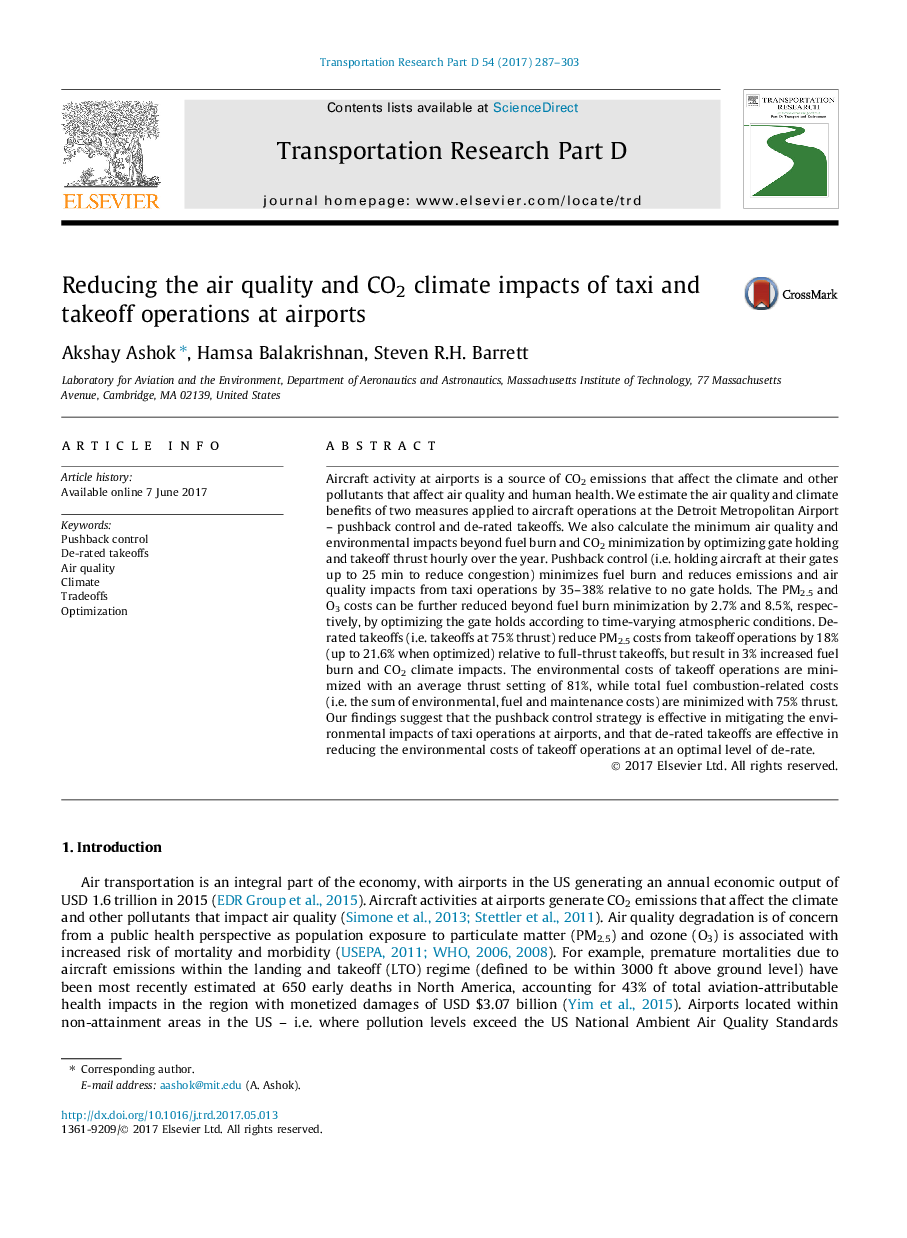| کد مقاله | کد نشریه | سال انتشار | مقاله انگلیسی | نسخه تمام متن |
|---|---|---|---|---|
| 5119235 | 1485870 | 2017 | 17 صفحه PDF | دانلود رایگان |

- We calculate the environmental benefits of pushback control and de-rated takeoffs.
- We optimize pushback control and takeoff thrust to minimize environmental impacts.
- Gate holds up to 25 min minimize fuel burn and reduce air quality costs by â¼35%
- De-rated takeoffs at 75% thrust reduce PM2.5 costs by 18% but increase fuel by 3%
- Environmental costs of takeoffs are minimized with an average optimal thrust of 81%
Aircraft activity at airports is a source of CO2 emissions that affect the climate and other pollutants that affect air quality and human health. We estimate the air quality and climate benefits of two measures applied to aircraft operations at the Detroit Metropolitan Airport - pushback control and de-rated takeoffs. We also calculate the minimum air quality and environmental impacts beyond fuel burn and CO2 minimization by optimizing gate holding and takeoff thrust hourly over the year. Pushback control (i.e. holding aircraft at their gates up to 25 min to reduce congestion) minimizes fuel burn and reduces emissions and air quality impacts from taxi operations by 35-38% relative to no gate holds. The PM2.5 and O3 costs can be further reduced beyond fuel burn minimization by 2.7% and 8.5%, respectively, by optimizing the gate holds according to time-varying atmospheric conditions. De-rated takeoffs (i.e. takeoffs at 75% thrust) reduce PM2.5 costs from takeoff operations by 18% (up to 21.6% when optimized) relative to full-thrust takeoffs, but result in 3% increased fuel burn and CO2 climate impacts. The environmental costs of takeoff operations are minimized with an average thrust setting of 81%, while total fuel combustion-related costs (i.e. the sum of environmental, fuel and maintenance costs) are minimized with 75% thrust. Our findings suggest that the pushback control strategy is effective in mitigating the environmental impacts of taxi operations at airports, and that de-rated takeoffs are effective in reducing the environmental costs of takeoff operations at an optimal level of de-rate.
Journal: Transportation Research Part D: Transport and Environment - Volume 54, July 2017, Pages 287-303